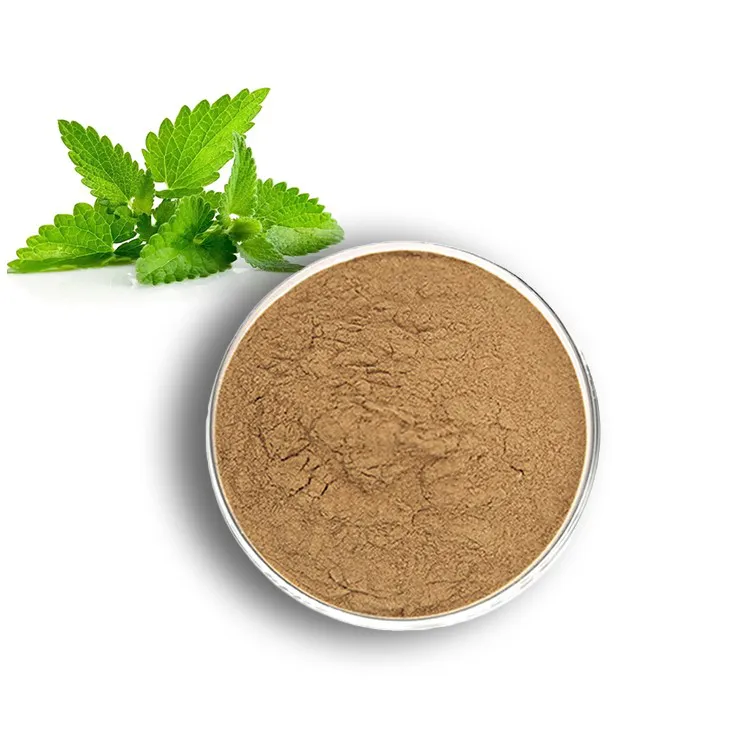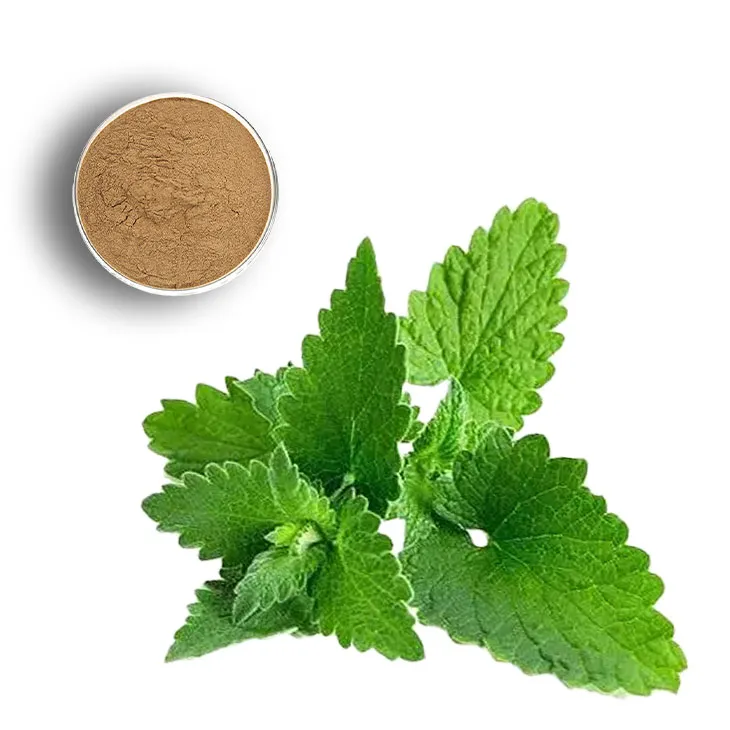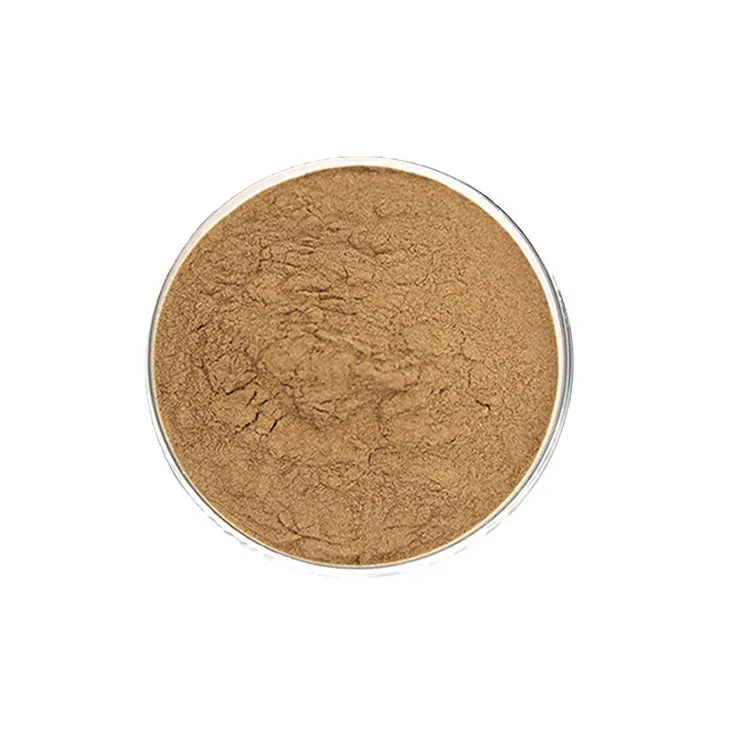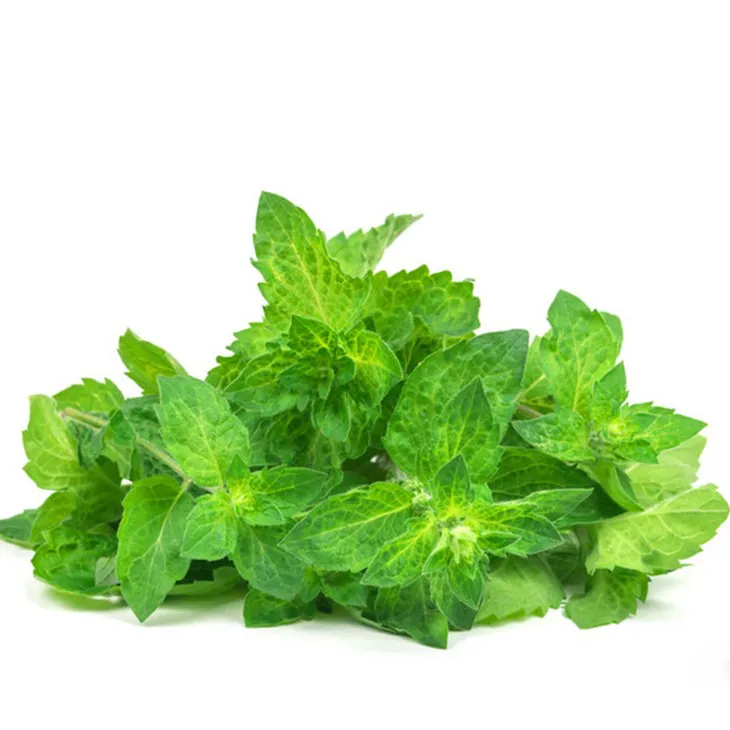- 0086-571-85302990
- sales@greenskybio.com
Lemon Balm Extract: Should You Use It for Skin Care?
2024-11-14

Skincare has become an important part of our daily routine. With a plethora of products and ingredients available in the market, it can be quite overwhelming to choose the right ones for our skin. One such ingredient that has been garnering attention lately is Lemon Balm Extract. In this article, we will take an in - depth look at Lemon Balm Extract and help you decide whether or not it should be a part of your skincare regimen.
1. What is Lemon Balm Extract?
Lemon balm, scientifically known as Melissa officinalis, is a herbaceous plant that belongs to the mint family. It has been used for centuries in traditional medicine for its various therapeutic properties. The extract of this plant is obtained through a process that involves drying and then extracting the active compounds from the leaves. These active compounds include flavonoids, phenolic acids, and terpenoids, which are believed to be responsible for the potential skincare benefits.

2. Nutrients in Lemon Balm Extract
Lemon balm extract is rich in a variety of nutrients that can potentially nourish the skin.
2.1 Flavonoids
Flavonoids are powerful antioxidants that can help protect the skin from free radical damage. Free radicals are unstable molecules that can cause oxidative stress in the skin, leading to premature aging, wrinkles, and dullness. By neutralizing these free radicals, flavonoids in lemon balm extract can help maintain the skin's youthful appearance.
2.2 Phenolic Acids
Phenolic acids also possess antioxidant properties. In addition, they have anti - inflammatory effects. This can be beneficial for those with sensitive or inflamed skin conditions such as acne, rosacea, or eczema. They can help soothe the skin, reduce redness, and promote a more even skin tone.
2.3 Terpenoids
Terpenoids in lemon balm extract may have antimicrobial properties. This means they can potentially fight against bacteria, fungi, and viruses that may be present on the skin. By keeping the skin free from harmful microorganisms, terpenoids can contribute to a healthier skin environment.

3. Potential Skin Benefits
The nutrients present in lemon balm extract can translate into several potential skin benefits.
3.1 Skin Nourishment
The combination of various nutrients in lemon balm extract provides overall nourishment to the skin. It can help improve the skin's natural barrier function, which is crucial for keeping the skin hydrated and protected from external aggressors such as pollutants and harsh weather conditions.
3.2 Complexion Improvement
As mentioned earlier, the antioxidant and anti - inflammatory properties of lemon balm extract can lead to an improvement in skin complexion. It can reduce the appearance of blemishes, dark spots, and hyperpigmentation, giving the skin a more radiant and even - toned look.
3.3 Anti - Aging Effects
By protecting the skin from free radical damage and promoting collagen production (due to its antioxidant properties), lemon balm extract can potentially reduce the signs of aging. Fine lines and wrinkles may become less visible, and the skin may appear more firm and elastic.

4. Potential Downsides
While lemon balm extract offers several potential benefits, it is also important to be aware of the possible downsides.
4.1 Allergic Reactions
Some individuals may be allergic to lemon balm extract. Allergic reactions can range from mild skin irritation, such as redness and itching, to more severe symptoms like swelling and difficulty breathing in rare cases. It is essential to perform a patch - test before using any product containing lemon balm extract, especially if you have a history of allergies.
4.2 Sensitivity to Sunlight
There is some evidence to suggest that certain compounds in lemon balm extract may increase the skin's sensitivity to sunlight. This means that if you use products containing lemon balm extract, you may be more prone to sunburn and other forms of sun - related skin damage. It is advisable to use sunscreen regularly when using such products and avoid excessive sun exposure.

5. Compatibility with Skin Products
Lemon balm extract can be found in a variety of skin products, including creams, lotions, serums, and masks. However, its compatibility with other ingredients in these products needs to be considered.
-
When combined with acidic ingredients such as glycolic acid or salicylic acid, it may enhance the exfoliating and skin - renewing effects. However, this combination may also increase the risk of skin irritation, especially for those with sensitive skin. So, it is important to monitor the skin's reaction carefully.
-
It can also be combined with moisturizing ingredients like hyaluronic acid. In this case, the lemon balm extract can provide additional antioxidant benefits while the hyaluronic acid helps to hydrate the skin. This combination can be particularly beneficial for dry or dehydrated skin types.
-
Some products may contain both lemon balm extract and essential oils. While essential oils can add a pleasant aroma and potentially additional skincare benefits, they can also cause skin irritation if not used properly. It is crucial to ensure that the product is formulated in a way that balances the use of these ingredients to avoid any adverse effects.
6. Patch - Testing
Patch - testing is a crucial step when considering the use of lemon balm extract in your skincare routine.
-
Choose a small, inconspicuous area of your skin, such as behind the ear or on the inner side of your forearm.
-
Apply a small amount of the product containing lemon balm extract to the chosen area.
-
Leave the product on the skin for at least 24 hours, preferably 48 hours, without washing it off.
-
During this time, observe the skin for any signs of redness, itching, swelling, or other abnormal reactions.
-
If there are no adverse reactions after the patch - test, it is likely that the product is safe for you to use on a larger area of your skin. However, if any symptoms occur, it is best to avoid using the product altogether.
7. Conclusion
Lemon balm extract has several potential benefits for the skin, including nourishment, complexion improvement, and anti - aging effects. However, it also has some potential downsides, such as the risk of allergic reactions and increased sunlight sensitivity. When considering using products containing lemon balm extract, it is important to be aware of these factors and to perform a patch - test. Additionally, understanding its compatibility with other skin product ingredients can help you make an informed decision about whether or not lemon balm extract is suitable for your skincare needs. With proper care and consideration, lemon balm extract can potentially be a valuable addition to your skincare routine.
FAQ:
What are the nutrients in lemon balm extract that can nourish the skin?
Lemon balm extract contains various nutrients such as flavonoids, phenolic acids, and terpenoids. Flavonoids have antioxidant properties that can protect the skin from free - radical damage. Phenolic acids may help in soothing the skin and reducing inflammation. Terpenoids can contribute to the overall health of the skin by promoting cell renewal.
How does lemon balm extract improve skin complexion?
The antioxidant properties of lemon balm extract play a key role in improving skin complexion. By fighting free radicals, it helps to prevent premature aging, which can lead to a dull complexion. Additionally, its anti - inflammatory effects can reduce redness and irritation, resulting in a more even - toned and radiant complexion.
What are the potential downsides of using lemon balm extract in skincare?
One potential downside is that some people may be allergic to lemon balm extract. It can cause skin irritation, redness, or itching in sensitive individuals. Also, if used in excessive amounts, it might disrupt the skin's natural pH balance, which could lead to dryness or other skin problems.
How do you test the compatibility of lemon balm extract with other skin products?
To test compatibility, you can perform a simple patch test. First, apply a small amount of the product containing lemon balm extract on a small area of skin, like the inside of your wrist or behind your ear. Leave it on for 24 - 48 hours and observe for any signs of irritation, redness, or swelling. If there are no adverse reactions, it is likely to be compatible with your skin. When combining it with other skin products, start by using them separately for a few days to see how your skin reacts before using them together.
Why is patch - testing important when using lemon balm extract?
Patch - testing is crucial because it helps to identify any potential allergic reactions or skin sensitivities before using the product more widely on the face or body. Since everyone's skin is different, what may be suitable for one person may not be for another. By doing a patch - test, you can avoid more severe skin reactions that could occur if you were to apply the product without testing first.
Related literature
- The Benefits and Risks of Botanical Extracts in Skincare"
- "Lemon Balm: A Comprehensive Review of its Chemical Composition and Skin - related Properties"
- "Skin - Nourishing Compounds in Herbal Extracts: A Focus on Lemon Balm"
- ▶ Hesperidin
- ▶ Citrus Bioflavonoids
- ▶ Plant Extract
- ▶ lycopene
- ▶ Diosmin
- ▶ Grape seed extract
- ▶ Sea buckthorn Juice Powder
- ▶ Fruit Juice Powder
- ▶ Hops Extract
- ▶ Artichoke Extract
- ▶ Mushroom extract
- ▶ Astaxanthin
- ▶ Green Tea Extract
- ▶ Curcumin
- ▶ Horse Chestnut Extract
- ▶ Other Product
- ▶ Boswellia Serrata Extract
- ▶ Resveratrol
- ▶ Marigold Extract
- ▶ Grape Leaf Extract
- ▶ New Product
- ▶ Aminolevulinic acid
- ▶ Cranberry Extract
- ▶ Red Yeast Rice
- ▶ Red Wine Extract
-
Chia Seed Powder
2024-11-14
-
Gynostemma pentaphyllum extract
2024-11-14
-
Mango flavored powder
2024-11-14
-
Cassia Seed Extract
2024-11-14
-
Hops Extract
2024-11-14
-
Okra Extract
2024-11-14
-
Mangosteen extract powder
2024-11-14
-
Grapefruit Seed Extract Powder
2024-11-14
-
Kidney Bean Extract
2024-11-14
-
Motherwort Extract
2024-11-14





















